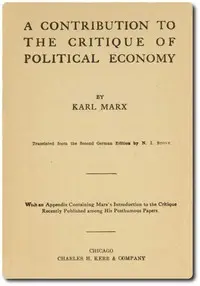"The Eighteenth Brumaire of Louis Bonaparte" by Karl Marx is a historical account written in the mid-19th century. The work analyzes the political events surrounding the rise to power of Louis Bonaparte (later Napoleon III) in France during the period between the February Revolution of 1848 and the coup d'état of December 2, 1851. Marx explores the struggles between various social classes, focusing on the bourgeoisie and the proletariat, as well as the complexities of political movements and their implications for societal change. At the start of "The Eighteenth Brumaire of Louis Bonaparte," Marx sets the stage by reflecting on the cyclical nature of history, where events often repeat themselves, albeit in different forms. He begins by outlining the February Revolution and its aftermath, detailing the power dynamics within the National Assembly and the various factions, including the republican bourgeois and the proletariat. Marx emphasizes the disillusionment of the proletariat and the deceptive alliances formed by the bourgeois parties, ultimately leading to Bonaparte's political maneuvers that would culminate in his seizure of power. The opening portion establishes the foundation for Marx's critique of the political landscape, illustrating how the historical events serve as a broader commentary on class struggle and revolutionary dynamics. (This is an automatically generated summary.)

The Eighteenth Brumaire of Louis Bonaparte
By Karl Marx
Translation of Achtzehnte brumaire
Genres
Released
2006-02-19
Formats
epub (images)
epub
epub3 (images)
mobi (images)
mobi
Free Download
Overview
About the Author
Karl Marx was a German-born philosopher, political theorist, economist, historian, sociologist, journalist, and revolutionary socialist. His best-known works are the 1848 pamphlet The Communist Manifesto and his three-volume Das Kapital (1867–1894); the latter employs his critical approach of historical materialism in an analysis of capitalism, in the culmination of his intellectual endeavours. Marx's ideas and their subsequent development, collectively known as Marxism, have had enormous influence on modern intellectual, economic and political history.
Total Reviews
10.0k
Total reviews from Goodreads may change

















